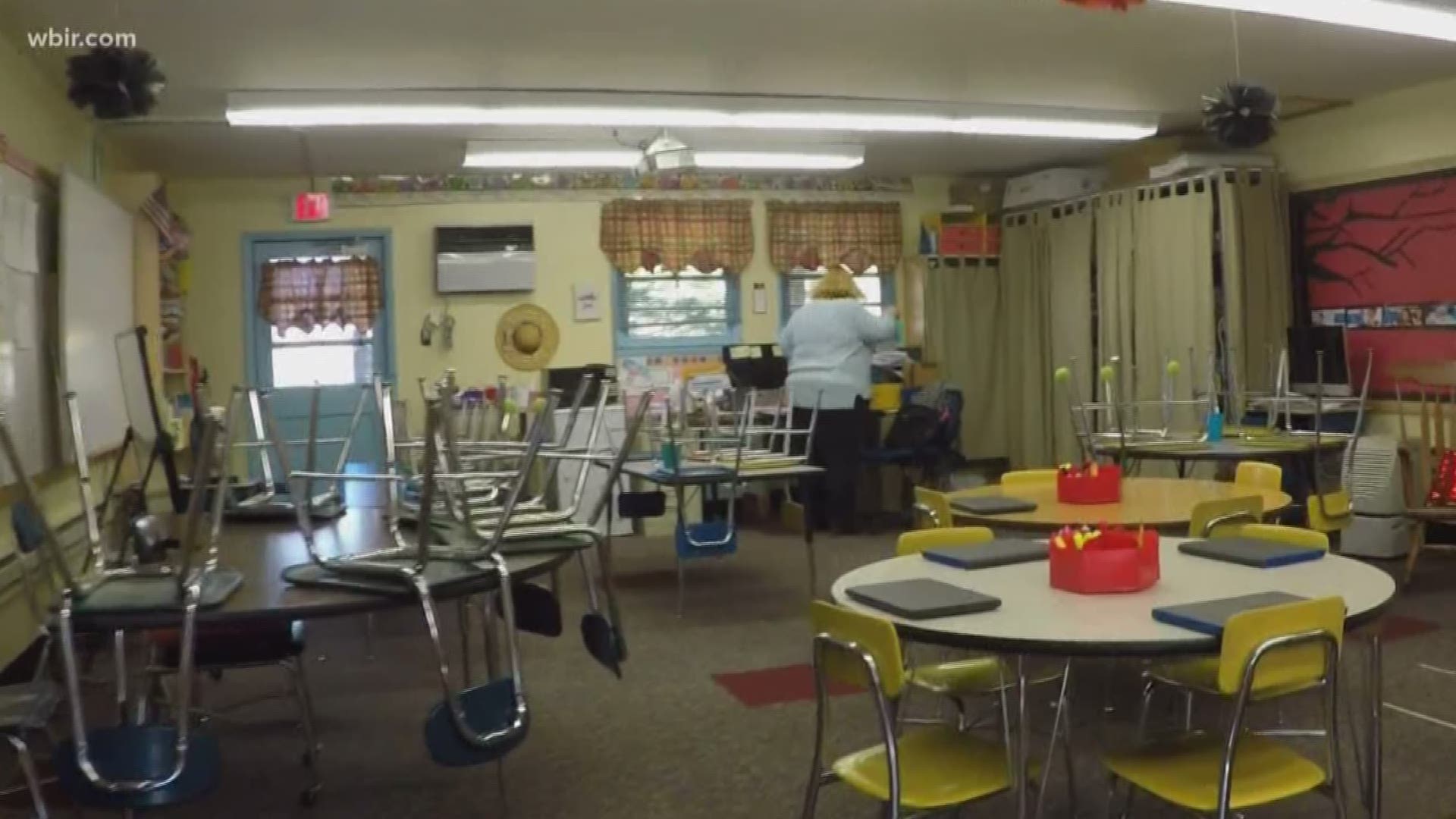NASHVILLE, Tenn. (AP) — Tennessee legislative leaders are hoping to win over skeptical GOP members wary of a contentious voucher-style bill by offering more financial help to rural schools while also proposing to reduce funds to participating urban schools.
The amendment is the latest evolution to Gov. Bill Lee's education savings account proposal — also known as a voucher-style program allowing families to take public dollars to pay for private school tuition and other approved expenses. The change also comes late into the legislative session, with the newly amended version approved by a House panel on Wednesday, where it now goes to the full House floor for review.
According the amendment, qualifying families living in the state's four most-populated school districts could receive up to $7,500 in exchange for the student not attending that public school. The four urban areas were selected because they contain many of the state's poor-performing schools.
The money the families receive would then be subtracted from the district's funding formula. That's because state law currently says schools get a certain amount of money based on student enrollment as one of the factors involved in Tennessee's school funding formula.
Once families receive the ESA, the state would give the school district a partial reimbursement to help cover the cost of the lost revenue. However, the state would also take a percentage of that reimbursement and dedicate it to a grant fund that non-participating rural schools could use for improvements.
Over the course of three years, urban schools would receive fewer and fewer reimbursement rates while the fund for rural schools would increase.
Previously, advocates of the voucher program had said Tennessee's participating ESA schools — located largely in urban areas in Democratic strongholds — would receive a full reimbursement for losing students rather than a partial amount. The new change now funnels more money to rural areas, where key lawmakers reside in order to get the proposal to the governor's desk by the end of session.
"Really at the end of the day, this is important to me and really important to rural legislators. I have consistently for a number of years voted against voucher legislation," said Republican Deputy Speaker Matthew Hill on Wednesday. "What I am a fan of is making sure my district and my schools are ultimately allowed to continue to improve and thrive."
The amendment also caps the ESA program at 30,000 students after four years. A fiscal review of the plan estimates that it will cost the state $75 million for the first three years, but could potentially cost as much as $125 million.
On Wednesday, Knox County Schools superintendent Bob Thomas said the bill, if passed, would take more than $6 million from the district in the first year -- and potentially $40 million if it's expanded beyond 30,000 students.
Supporters argue ESAs are beneficial to providing families with more options to improve their child's education when they likely did not choose to live in a poor-performing district. Yet ever since Lee first pitched the voucher bill, teacher unions, parents and other education advocates have raised concerns that the bill will do little to improve the state's failing schools because money will be leaving the district.
"We're very concerned and confounded because the bill keeps being amended and it's very confusing," said Becky Sharpe, one of the parents held a news conference at the Tennessee Capitol on Wednesday. "We feel like that we're not in the know about a topic that really impacts our children. And we're confused as to why it is we've got people who do not participate in the public school system advocating for something that is going to hurt our public school system."
Currently, five states allow some sort of ESA: Arizona, Florida, Mississippi, Tennessee and North Carolina. The Nevada Supreme Court struck down its state's law after ruling that the funding mechanism was unconstitutional.
In Tennessee, the existing program is fairly small. Parents of students with certain disabilities can withdraw their children from public school and then receive up to $6,000 to pay for private educational services.

